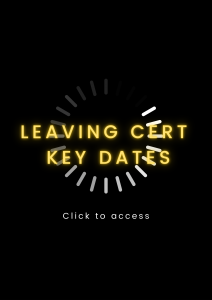1. “Tell me a little about yourself?”
Once the initial pleasantries have been exchanged the interviewee can expect this invitation to introduce themselves in a positive light. This affords the interviewer the opportunity to analyse you as an individual through what you say about yourself and how you say it. As the old adage says, first impressions last. It is advisable to keep it short and succinct, preferably within 2–3 minutes.
2. “Do you have any weaknesses?”
Having dissected the organisation’s profile thoroughly, you should have a strong appreciation of what qualities are considered strengths and possibly more importantly weaknesses. There are numerous ways to attack this two-fold question.
You can turn the argument in your favour by admitting to possessing faults which are a prerequisite to the job requirement. Also, you can camouflage strengths as weaknesses. An example of this would be to describe yourself as a very meticulous person with an exceptional attention to detail to the point of being pernickety (for this to be successful, the position must lend itself to this attribute). Finally, a confession to past weaknesses can be highlighted and how you acquired new skills and developed as a person by addressing and overcoming them.
3. “What are your reasons for wanting to work here?”
Each organisation possesses its own unique strong points, and these should stand out in your response. If the company emphasizes quality, then you make the interviewer aware that you would like to be in such a group because you yourself believe in quality.
In the case that your values are out of sync with the ones of the company, ask yourself if you would be happy working in that type of environment. The best policy is to be honest with yourself, the interviewer and with what it is within the organisations culture that makes you want to work there.
4. “What do you see yourself doing five years from now?”
This is asked to ascertain your commitment to the job. The interviewer is trying to probe to see if you have a solid plan to follow or will just hop from job to job.
This question is also posed to see whether you are a person who sets goals in life. It’s proven that individuals who set long-term goals are more reliable. Certainty about what you want says a lot about your personality and is a trait that allows a person to lead and stay motivated.
Your response should leave the interviewer in no doubt that your professional progression is in line with that of the company. The organisation does not want to disappoint you in the future which may cause you to resign your position.
For a copy of Sli Nua Careers’ CV checklist, email getthatjob@slinuacareers.com with CV Checklist in the subject line. Sli Nua Careers offer CV preparation, interview training and mock interview services at their offices in Galway, Dublin and Ballinrobe, Co. Mayo. More: www.slinuacareers.com




